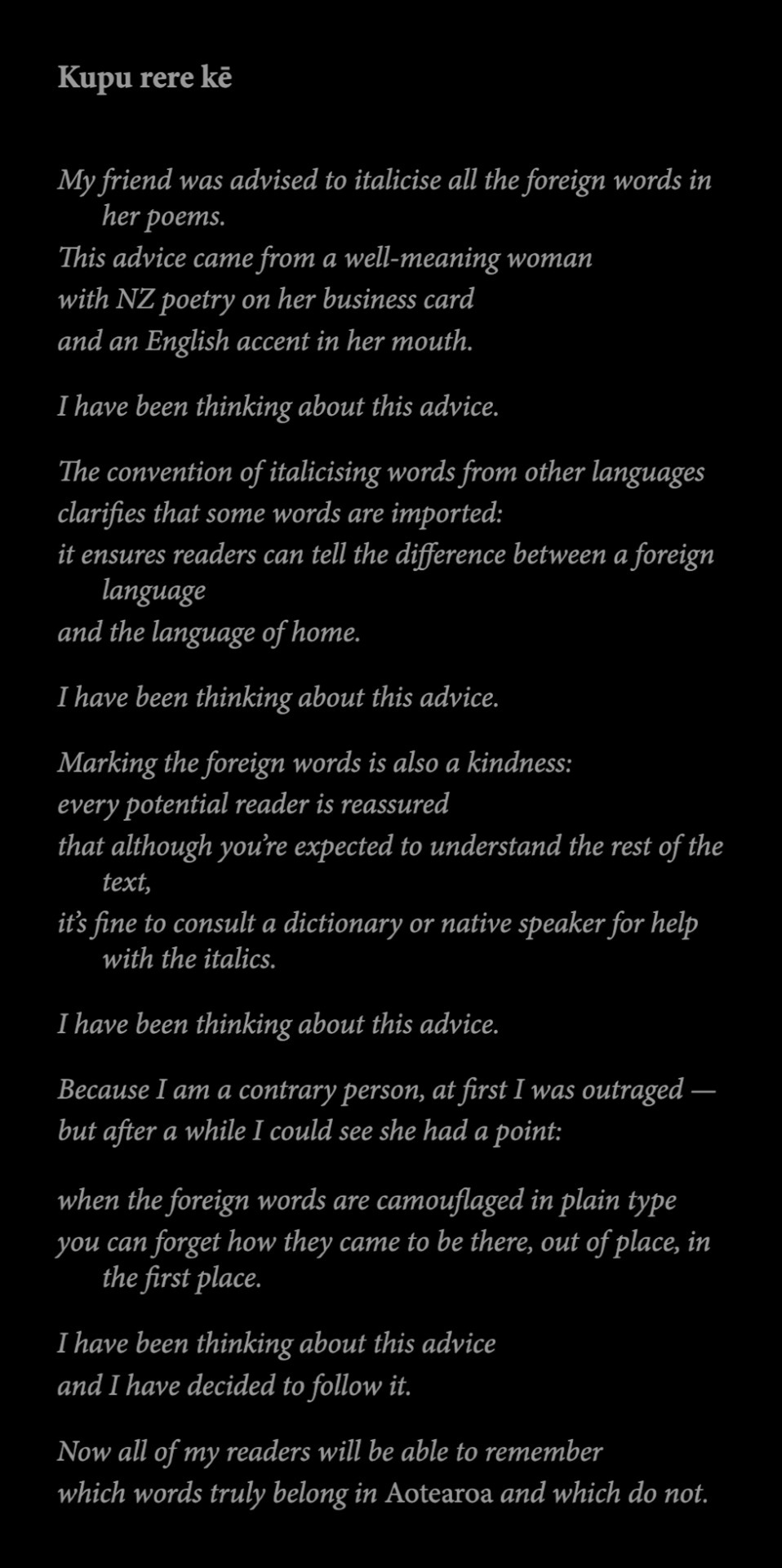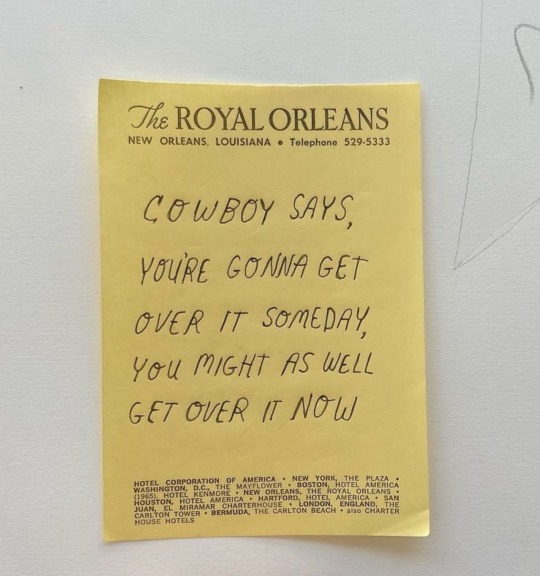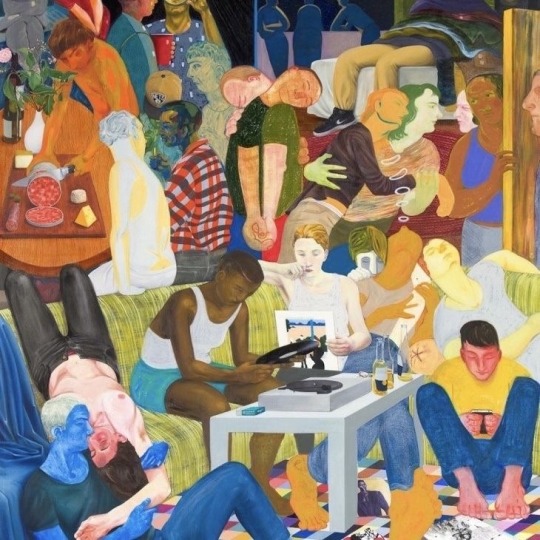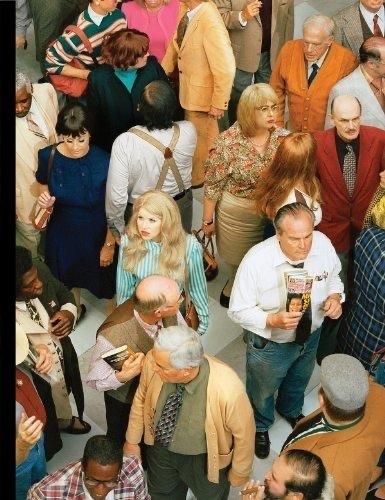Photo

Hiroki Kawanabe, “Deep Thought”, 2023 Acrylic on Paper, 18cm ×13.5cm
20K notes
·
View notes
Text
Engaging in border thinking is tantamount to engaging in decoloniality; that is, in thinking and doing decolonially. Why? Because the main thrust of border thinking is not in "improving" the disciplines, but toward "using" the disciplines beyond the disciplines themselves, aiming and building a world without modernity/coloniality. Border thinking is actional.
Walter D. Mignolo, Local Histories/Global Designs: Coloniality, Subaltern Knowledges, and Border Thinking, 2012
11 notes
·
View notes
Text
Revolution needs vision. The implementation of vision when successful at some point would engender violence because it would introduce a disruption and a crack into the calm waters of “reality”: that is, the common sense created through coloniality of knowledge and of being. Nevertheless, before and after violence, there is much that can be accomplished if the vision is pursued with determination, open-mindedness, and resolution, as Frantz Fanon tells us in the conclusion of The Wretched of the Earth. Vision in this case is tantamount to theory, and theory is a fundamental component of revolutionary praxis. There cannot be revolutionary praxis without theory. Praxis without theory is blind; theory without praxis is sequestered. Both join forces in that long-lasting horizon we can call vision and, in this case, decolonial visions.
Walter Mignolo and Catherine Walsh, On Decoloniality
16 notes
·
View notes
Text
Alice Te Punga Somerville, Always Italicise: How to Write While Colonised - Kupu rere kē

0 notes
Text
“And in resisting anti-Blackness, we must ask: How do we reimagine gender in a way that allows all Black children room to define their social and material lives ? How do we refuse the pressures to hypercriminalize or hyperinvisibilize Black children before they have even started along this journey ?”
— from Anti-Blackness Is Equilibrium by Hari Ziyad&Timothy DuWhite
88 notes
·
View notes
Text


[ID 1: Blackness here enters into the nonarchive of those lost to history: those whose presence never counted, whose absence was never accounted for, their existence unable to be recounted—that which does not even leave a trace.
ID 2: Death challenges the archive. Some murders allow the victims to live on as martyrs, rising out of ashes to form cinders in fiery phrases like “never again!” Other deaths do not simply consume bodies but burn them out of memory. Their disappearance is so complete that even their death is unrecoverable—unable to spark images of their suffering. This raises a deathly serious question: how to remove whiteness from the politics of citationality, especially when Black suffering does not grant membership into a shared human condition but rather bears the mark of a deathly violence so gratuitous that it cannot even leave a fugitive trace? end ID]
andrew culp, afropessimism and non-philosophy: at the zero point of subjectivity, history, and aesthetics in the big no ed. kennan ferguson
50 notes
·
View notes
Text

mini little riso prints
id: a riso print of a person with a skull head lying in the grass. they are surrounded by tall arching grasses & above them reads “nature held me close and seemed to find no fault with me”. they are naked and on their ribs is a trans symbol tattoo.
627 notes
·
View notes
Text
“Prisons do not disappear social problems, they disappear human beings. Homelessness, unemployment, drug addiction, mental illness, and illiteracy are only a few of the problems that disappear from public view when the human beings contending with them are relegated to cages.” ― Angela Davis
36 notes
·
View notes
Text
“You know, I have always been very interested and humbled by people’s response to “Mama’s Baby, Papa’s Maybe.” What I was trying to do when I wrote that essay many years ago was to find a vocabulary that would make it possible, and not all by myself, to make a contribution to a larger project. I was looking for my generation of black women who were so active in other ways, to open a conversation with feminists. Because my idea about where we found ourselves in the late 1970s and the mid-1980s, was that we were really out of the conversation that we had, in some ways, historically initiated. In other words, the women’s movement and the black movement have always been in tandem, but what I saw happening was black people being treated as a kind of raw material. That the history of black people was something you could use as a note of inspiration but it was never anything that had anything to do with you—you could never use it to explain something in theoretical terms. There was no discourse that it generated, in terms of the mainstream academy that gave it a kind of recognition. And so my idea was to try to generate a discourse, or a vocabulary that would not just make it desirable, but would necessitate that black women be in the conversation. And that is a theoretical conversation about any number of things but one of the things is certainly the feminist project. I had to write a piece called “Interstices…” for a feminist conference at Barnard College in 1982. I was supposed to talk about black women, the sexuality of black women. And I thought, you know what, before I can get to the subject of the sexuality of black women I didn’t see a vocabulary that would make it possible to entertain the sexuality of black women in any way that was other than traumatic. Before you could have a conversation about sexuality of black women you had to clear the static, clear the field of static. And so “Mama’s Baby, Papa’s Maybe” was really somewhere in there along with “Neither Nor,” “Permanent Obliquity,” and maybe one or two others. They all belong to that decade when we were searching for a vocabulary and didn’t find one that was immediately available. The available discourses all seemed to come out of experiences that somehow, when they got to me, did a detour. [Laughter.] Or the language broke down. Or it could not speak in theoretical terms. There were always reasons why the academy couldn’t address race and gender. And so my anxiety was finding a way to actually be in battle. To actually go to war with a whole repertoire of violent behavior that was always performed in a very genteel way. You know, people sitting around tables, sipping wine, eating cheese. They are just the nicest people in the world, [laughter] but they are carefully cloaking just an incredible hostility. And so the idea was to break from that barrier. It always seems that we are recreating the wheel in that way. You know, there are all these earlier pioneers in the institutional works of the black intellectual. I mean all of that work has been done, but then what happens is that the forces that are really hostile to black life, to black people, are always operating. So that we are in a period of reaction now that is so strong, that if we are not careful the work we are doing now is going to have to be “rediscovered” at some point. You know, people are going to have to keep doing it, or rediscover it again, or reassert it because the forces of opposition are so forceful and so powerful and they’re always pushing against us, they always want to enforce forgetfulness. They always want to do something that forgets the African presence or reabsorbs it, reappropriates it in another way. The need to confront psychological violence, epistemic violence, intellectual violence is really powerful. “Mama’s Baby, Papa’s Maybe” was about bolstering myself, living to fight another day—I became very good at being a marksman and ducking.”
— Hortense J. Spillers, in “‘Whatcha Gonna Do?’: Revisiting “Mama’s Baby, Papa’s Maybe: An American Grammar Book”: A Conversation with Hortense Spillers, Saidiya Hartman, Farah Jasmine Griffin, Shelly Eversley, & Jennifer L. Morgan,” WSQ, 35.1-2, 2007
109 notes
·
View notes
Text
“Let’s face it. I am a marked woman, but not everybody knows my name.”
— Hortense Spillers, from Mama’s Baby, Papa’s Maybe: An American Grammar Book (PDF here)
74 notes
·
View notes
Text
I relish the etymology of our word thing - that sturdy term of designation, that robust everyday indicator of the empirical - whereby in Old English thynge does not only designate a material object, but can also denote 'a narrative not fully known', or indicate 'the unknowability of larger chains of events'.
- Robert MacFarlane, Landmarks
60 notes
·
View notes














